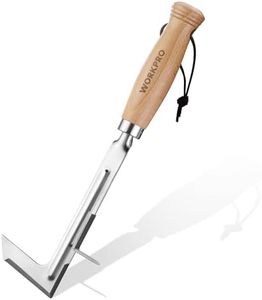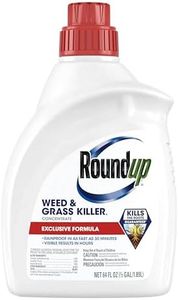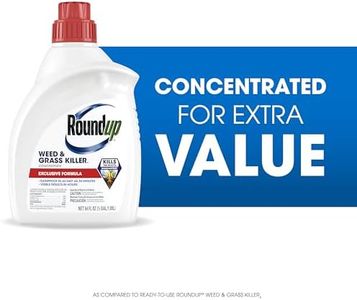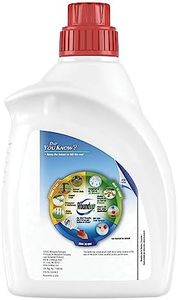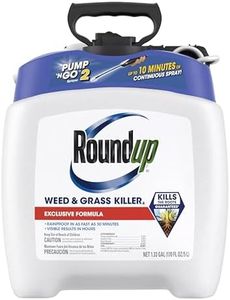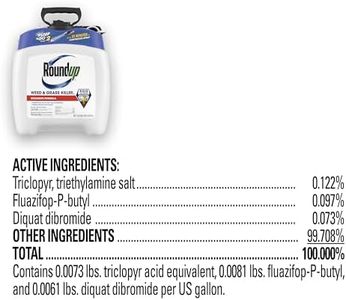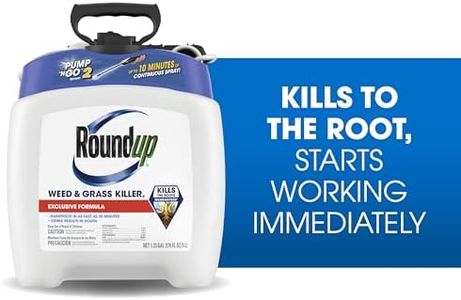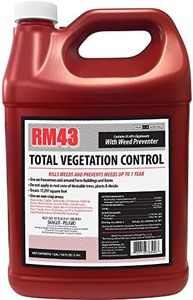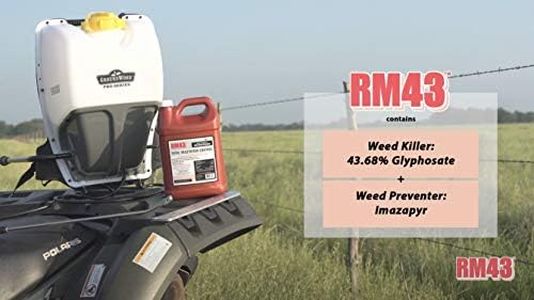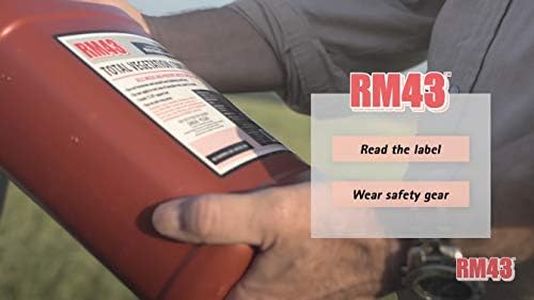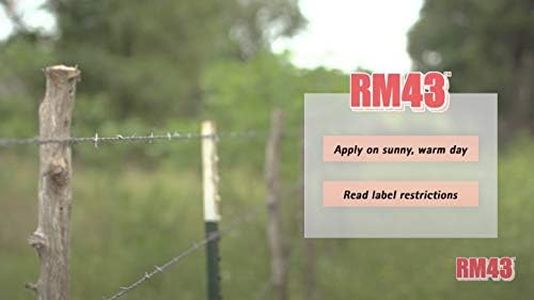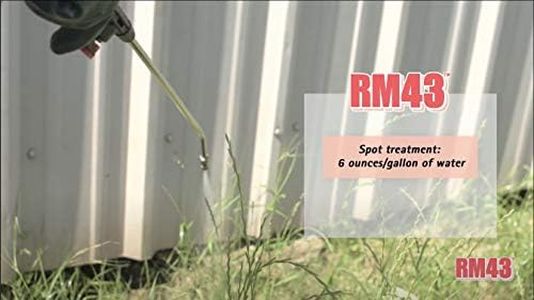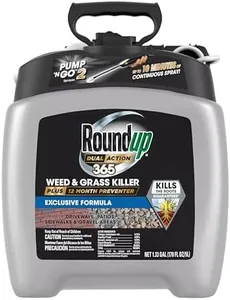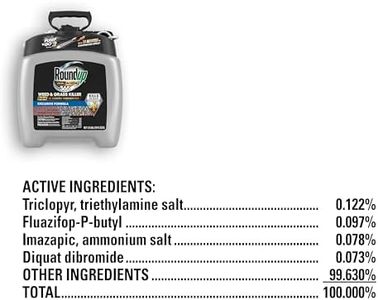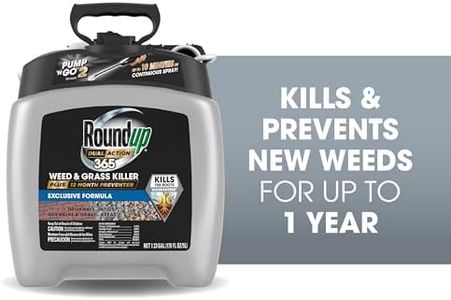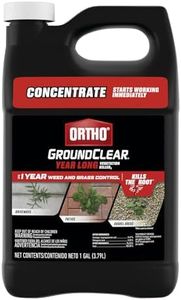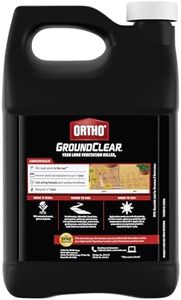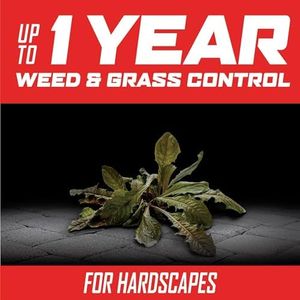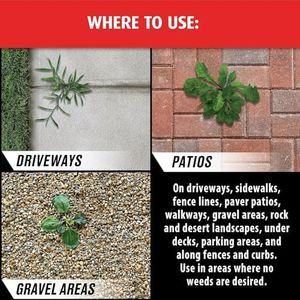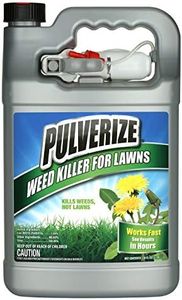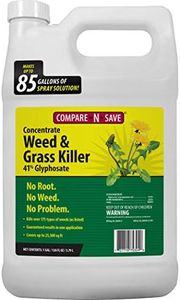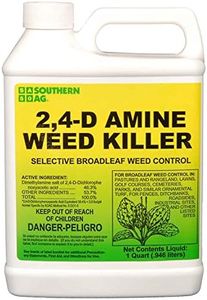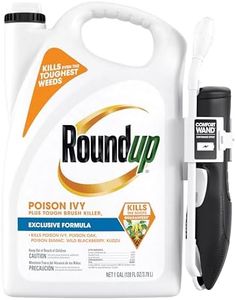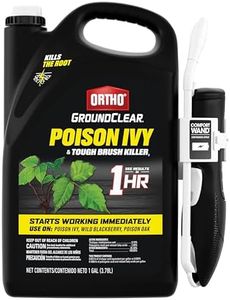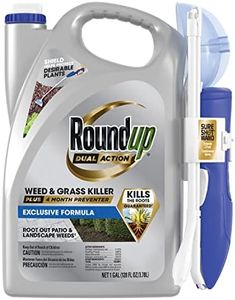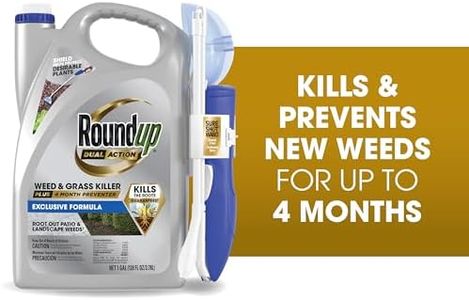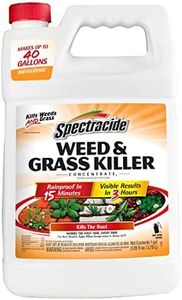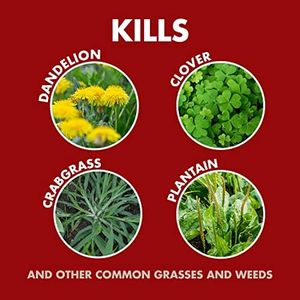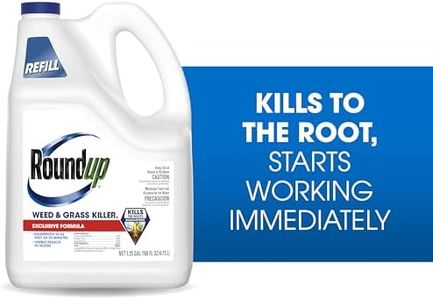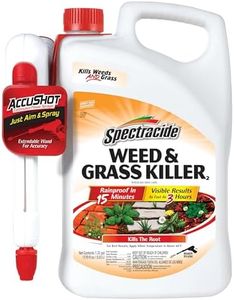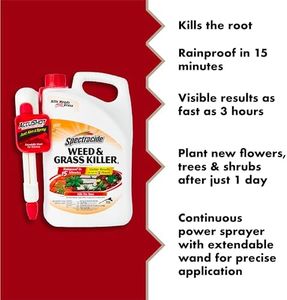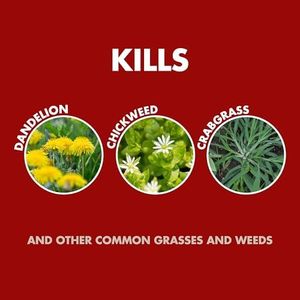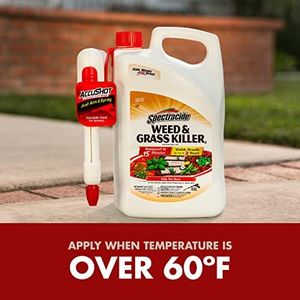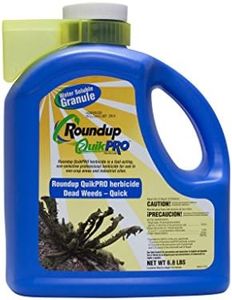10 Best Weed Killers 2025 in the United States
Winner
Roundup Weed and Grass Killer₄ Concentrate, Use Around Flower Beds and Trees, on Walkways, and in Other Areas in Yards, 64 fl. oz.
Roundup Weed and Grass Killer₄ Concentrate, Use Around Flower Beds and Trees, on Walkways, and in Other Areas in Yards, 64 fl. oz.
Chosen by 1224 this week
Roundup Weed and Grass Killer₄ with Pump 'N Go 2 Sprayer, Use in and Around Flower Beds, Trees & More, 1.33 gal.
Roundup Weed and Grass Killer₄ with Pump 'N Go 2 Sprayer, Use in and Around Flower Beds, Trees & More, 1.33 gal.
RM43 Concentrated Extended Control Weed Killer
RM43 Concentrated Extended Control Weed Killer
Roundup Dual Action 365 Weed & Grass Killer Plus 12 Month Preventer with Pump 'N Go 2 Sprayer, 1.33 gal.
Roundup Dual Action 365 Weed & Grass Killer Plus 12 Month Preventer with Pump 'N Go 2 Sprayer, 1.33 gal.
Ortho GroundClear Year Long Vegetation Killer2 Concentrate, Kills and Prevents Weeds Up to 12 Months, 1 gal.
Ortho GroundClear Year Long Vegetation Killer2 Concentrate, Kills and Prevents Weeds Up to 12 Months, 1 gal.
Roundup Dual Action Weed & Grass Killer Plus 4 Month Preventer with Sure Shot Wand, 1 gal.
Roundup Dual Action Weed & Grass Killer Plus 4 Month Preventer with Sure Shot Wand, 1 gal.
Spectracide Weed And Grass Killer Concentrate 1 Gallon, Use On Patios, Walkways And Driveways
Spectracide Weed And Grass Killer Concentrate 1 Gallon, Use On Patios, Walkways And Driveways
Roundup Weed & Grass Killer₄ Refill, Use in and Around Flower Beds, Trees, Driveways, Walkways & More, 1.25 gal.
Roundup Weed & Grass Killer₄ Refill, Use in and Around Flower Beds, Trees, Driveways, Walkways & More, 1.25 gal.
1 gal Ready-to-Use Grass and Weed Killer
1 gal Ready-to-Use Grass and Weed Killer
Roundup Quickpro 6.8lb
Roundup Quickpro 6.8lb
Our technology thoroughly searches through the online shopping world, reviewing hundreds of sites. We then process and analyze this information, updating in real-time to bring you the latest top-rated products. This way, you always get the best and most current options available.

Our Top Picks
Winner
Roundup Weed and Grass Killer₄ Concentrate, Use Around Flower Beds and Trees, on Walkways, and in Other Areas in Yards, 64 fl. oz.
Most important from
6068 reviews
The Roundup Weed and Grass Killer₄ Concentrate is a liquid weed killer designed to eliminate a wide range of weeds and grasses, including tough ones like dandelions, poison ivy, and crabgrass. It contains active ingredients such as Triclopyr, Fluazifop-P-Butyl, and Diquat Dibromide, which work together to kill weeds down to the root. You apply it by mixing with water and spraying with either a tank or hose-end sprayer. One strong point is how quickly it becomes rainproof—just 30 minutes after application—so you don’t have to worry about rain washing it away immediately. It covers about 300 square feet per gallon of spray solution, which is suitable for spot treatments or larger yard areas where weeds are a problem.
The product is advertised for use around flower beds, trees, walkways, and even freshly cut woody stumps, which makes it versatile for different yard spots. After applying, you can plant new vegetation within 1 to 30 days depending on instructions, offering some flexibility for garden planning. On the downside, because it contains strong chemicals, users should handle it carefully to avoid damage to desirable plants and to consider environmental effects. It’s not an organic option and may not be ideal for sensitive areas or where pets and children play.
This concentrate is well suited for homeowners looking for a powerful, fast-acting weed killer with broad coverage who are comfortable following safety guidelines.
Most important from
6068 reviews
Roundup Weed and Grass Killer₄ with Pump 'N Go 2 Sprayer, Use in and Around Flower Beds, Trees & More, 1.33 gal.
Most important from
6068 reviews
The Roundup Weed and Grass Killer with Pump 'N Go 2 Sprayer is a non-selective weed killer, meaning it kills most plants it touches, including both weeds and grass. It contains active ingredients like Triclopyr and Diquat Dibromide that work systemically, attacking the roots to prevent regrowth. This product produces visible results within hours and becomes rainproof in about 30 minutes, which is convenient if you expect sudden weather changes. Its application method is straightforward thanks to the attached Pump 'N Go sprayer with an extendable wand, allowing for easy and accurate spraying without bending over, covering about 300 square feet per bottle.
The formula has a limited residual effect, allowing planting new plants from 1 to 30 days after use, so it’s suitable for use around flower beds, trees, patios, and walkways where you want to clear unwanted vegetation but still plant soon after. It targets a broad range of tough weeds such as dandelion, crabgrass, poison ivy, and clover, making it ideal for homeowners who need a reliable solution for persistent weeds in various outdoor areas.
Being non-selective, you need to be careful not to spray desirable plants since it will kill them too. Also, while it is effective, the strong active ingredients require careful handling to minimize environmental impact and avoid harm to pets, wildlife, and beneficial plants nearby. This product is well suited for users looking for a powerful, easy-to-apply weed killer for broad use around their yard, especially when they want fast results and plan to replant shortly after treatment.
Most important from
6068 reviews
RM43 Concentrated Extended Control Weed Killer
Most important from
9797 reviews
The RM43 Concentrated Extended Control Weed Killer is designed for serious weed control, promising up to a year of vegetation management. As a concentrated formula, it needs to be mixed with water and applied using a sprayer. The active ingredient, glyphosate, is effective but can be controversial due to environmental concerns.
One of its most notable strengths is its extensive coverage area of 17,297 square feet, making it suitable for large properties. The product is rainfast once it dries, ensuring that it remains effective even after rainfall. However, users should be cautious about its application near desirable plants and water sources due to potential environmental impact.
The product has received high customer ratings (4.6 out of 5) and is ranked highly in its category, indicating user satisfaction. This weed killer is ideal for those needing comprehensive, long-term control over large areas, but users should weigh its effectiveness against environmental considerations.
